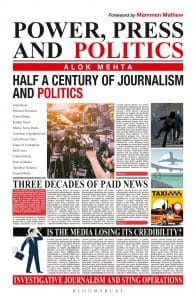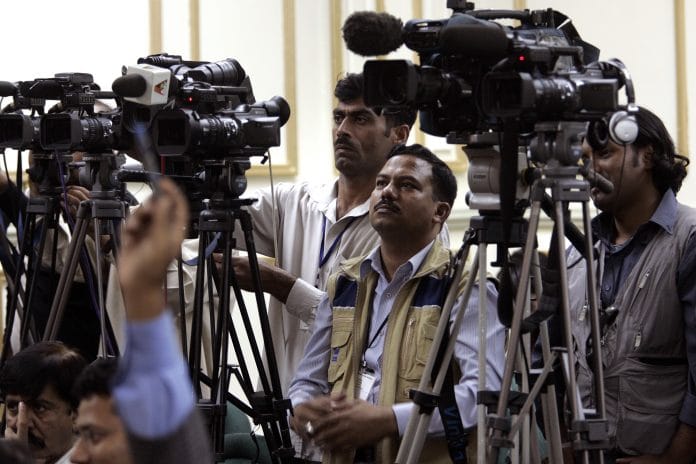Despite the Election Commission seemingly breathing down the necks of politicians, money power is far from being tamed in elections. For all the adeptness of the commission’s sleuths on the prowl, it would be naïve to think that the role of money has been reduced to the minimum. Political parties and candidates are still spending crores of rupees from their coffers to improve their chances in the electoral battle. In some stray cases, greenhorns are getting caught too. At the same time, those old political players who are adept in skirting the rules of the game are successfully transforming their tarnished images through the power of their pockets. Of course, Bihar is considered a very poor, backward, less literate state, but still, political leaders, mandarins, contractors and fixers are all able to show off their clout and identity with the help of money. Cunning and unconscionable politicians mint money from almost everything in this state, right from chickens, cows, buffaloes, farms, roads, bridges, motor vehicles, huts, high-rises, trees and mines down to shops. The Election Commission is pitted against this kind of scenario. It has, of course, managed to stem the brazen dance of money. Its stern posturing has also reined in the media outlets resorting to ‘paid news’. This is doubtless a welcome development.
During the previous elections, the efforts of leaders and their supporters to get ‘customised’ reports in their favour on payment have really blackened the face of the media. But it is equally true that the trend of enticing media by the lure of lucre is not a recent malady. It started in Bihar itself 35 years ago. Two politicians of the state who called the shots the time, one in the state and another at the Centre, initiated this murky trend that got reflected amply in Delhi. The money games, of course, were started by Congressmen; slowly but surely, all influential party leaders followed suit. Some so-called principled and reputed journalists and editors stooped more unabashedly than the political leaders. They had the best of both worlds and evenly collected money from either side of the fence. In last three years some write-ups that appeared in English newspapers, penned by journalists who command prestige in the profession and some actions initiated by the Press Council of India, brought this disease of paid news on to the national agenda. But 25 years ago, some political big guns in Delhi would hand out ‘envelopes’ to for-sale media sharks and did not forget to confide this to their reliable associates. They would taunt with glee while telling it to their friends. They would say, ‘Now look, once they have got their pie, be sure, they would not only publish good story themselves but get them published by others as well by giving them some morsel.’ It is but natural that this kind of jibe even in the garb of humour would feel like slaps to the gentry of the profession.
A few senior journalists were blithely unaware of the muck that was practised in political corridors for years. Had they taken the pain to ask some of us, we would have briefed them on this with some shameful old stories. A couple of them could be referred to here. One relates to the bureau chief of a big-ticket newspaper who went to cover the election meetings of Raebareli and Amethi (UP) during the parliamentary elections that ensued after lifting of the Emergency. He took a tour advance from his media house and ₹20,000 rupees from media in charge of the Congress Party into the bargain. He faithfully filed reports that spoke of the very bright prospect of the victory of Indira Gandhi and of Congress. His reports proved wrong, and Congress Party along with Indira Gandhi had to lick the dust. After the humiliating results, the same journalist had the temerity to ask the same media in charge of Congress for an extra ₹4,000 that he had to spend from his hard-earned money. It was another thing that the charge had no one to turn to for this money in that hour of calamity.
Another example belongs to a few years later. A journalist who acted as a broker for one leading Opposition party managed funds and went to cover a tour of a prominent leader with some other journalists. After distributing some part of the fund among their friends, the pack downed many bottles of whisky. Due to very sensitive issue and communal tension, the senior leader was arrested on the way, leaving the ‘paid party’ in a whisky-induced stupor. The employer newspapers received the news by the grace of wire news agencies. The third example, belonging to Bihar of two decades ago, relates to the durbar of a former chief minister. The chief minister was having a chat with two of his close friends, one of them from Delhi. In the midst of the chit-chat that continued for a little too long, the personal assistant sent in a note twice. Lest the chief minister fails to notice the scribbled note, the assistant personally came inside to inform him that a journalist from Delhi had come to meet him. The chief minister, burst out, ‘Keep him waiting for another half an hour. He has come only to collect his ₹25,000 in lieu of publishing an article.’ The assistant went, and the journalist, ostensibly on sale, had to wait for a full 45 minutes for his turn.
Cut to 1995. The issue had become a kind of cause célèbre. In UP, the Samajwadi Party of the then chief minister, Mulayam Singh Yadav, had initiated a campaign against newspapers under the title ‘Halla Bol’. The Editors Guild of India had to intervene to redeem the prestige of journalism and constituted a high-powered probe committee to be sent to Lucknow. Along with senior editors Ajit Bhattacharjea and Inder Malhotra, I also had a chance to go there as a member of the probe team. After listening to journalists, editors and newspaper management’s side of the story, we talked to the chief minister and imagined little that we were in for a can of worms. Mulayam Singh produced incriminating documents about the newspapers in his line of fire. Included in those incriminating dossiers were the letters written by the owners of the newspapers to him asking for help in the promotion of their other business interests, along with news clippings that were exaggeratedly contrary to the facts. Later, the guild committee in its report condemned not only the attack on journalists but also the unethical and unconscionable deal. In fact, such deals with ruling cliques in different states have been rampant for long. At least paid news is there for all to see and is being probed. What about that news that did not see the light of the day? Such deals involving crores of rupees were never probed in preceding decades. Even today, there are newspapers that dump thousands of copies in the dustbin just to jack up their circulation figures so that the government could be fleeced to surfeit. Was any probe ever initiated against such practices? Was any sting operation undertaken on the media?
So, the façade of ethics has been bursting at the seams with such stories for quite some time. Journalists and leaders are privy to many such murky deals. But still, the likes of well-meaning journalists such as Sainath and Verghese can cheer up a bit to know that there are scores of journalists in states like Bihar, Jharkhand, Uttar Pradesh, Madhya Pradesh, Chhattisgarh, Maharashtra, Kerala, Odisha, Andhra and other states, getting pittance as remuneration, who are still doing their job with honesty and integrity. That meagre income goads individuals to become corrupt and resort to unfair ways and means, such clichéd thinking is wrong. If honesty would only have been the function of fat earnings, there would not be black money and corruption on the scale that we can see. In fact, it depends on the personal intentions, upbringing and mindset of individuals. The brouhaha in our country on the issue of ‘paid news’ now ignores the fact that it is a vice that was present 30 years ago even in countries like Germany, Russia, China and the US. In these countries too, there were journalists on sale and they were being paid, by measuring the length of the news in inches and centimetres, to get customised coverage. Now, big companies and PR agencies, besides government routes, are corrupting some journalists and whole media establishments in India, Pakistan and other countries.
 This excerpt of ‘Power, Press and Politics: Half a Century of Journalism’ by Alok Mehta has been published with special permission from Bloomsbury.
This excerpt of ‘Power, Press and Politics: Half a Century of Journalism’ by Alok Mehta has been published with special permission from Bloomsbury.






